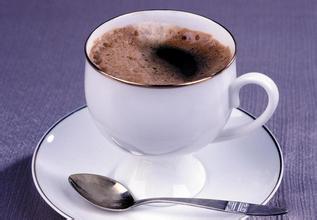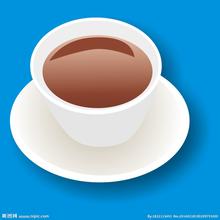Introduction to fragrant and pure Salvadoran coffee flavor and taste of manor boutique coffee
Formerly known as "San Salvador" and "Bahia". An important natural deep-water port on the Atlantic coast of Brazil, the capital of Bahia state. It is located on the east bank of Todos (Santos) Bay. With a population of 3459377 (as of August 1, 2010), it is the eighth largest city in Brazil. The ancient city, one of the oldest cities in Brazil, was founded in 1549, and the first churches were built by Jesuit priests in 1549. El Salvador was the capital of Brazil until 1763. It is a comprehensive industrial and commercial city. Oil is produced in the nearby Kandyas oil field. Industries include petroleum refining and petrochemistry, automobiles, food, tobacco, textiles, shipbuilding and so on. There are well-developed land and sea transportation and airports on the outskirts of the city. The port is open and deep, can berth ocean-going ships and super oil tankers, and export textiles, tobacco, coffee, oil and so on. The urban area is built on a peninsula extending into the Atlantic Ocean, divided into high and low cities, with lifts and cable cars connected. Multi-colonial buildings and churches, as well as universities and museums. The seaside has beautiful scenery and is a tourist attraction.
The ancient city of El Salvador was one of the main centers of the slave trade in Africa during the colonial period. In 1558, the first African slaves arrived here and engaged in sugar cane cultivation. Until the middle of the eighteenth century, the port of El Salvador became the main trading center of Portugal; it was located on the triangular trade route between Africa, Brazil and Europe. Many European immigrants settled in this city.
In the 17th century, when Portugal was still under Spanish rule, El Salvador was often attacked by the Dutch. In order to defend the city, many fortresses were built. In 1625, the city was again ruled by the Portuguese.
The ancient city, built on a peninsula extending into the Atlantic Ocean, occupies the end of a mountainous island and is divided into cities by a steep slope.
And the cities below (upper and lower cities) can be reached by elevator or climb on foot. The city wall preserved along the steep slope is arched. The upper city overlooks the activities of the people in the city below. The uptown has baroque buildings and many small squares, public buildings, dwellings and gardens. They are simple and elegant and keep better than the lower city. The streets here are numerous and narrow, with a variety of patterns on the road, paved with black and white stones; downtown, there is the Modrow market near the port, where houses and people's activities are carried out around the port and commerce, where the slave trade was once very popular, and now it is an extremely bustling handicraft market.
Salvadoran coffee ranks side by side with Mexico and Guatemala as the producers of Asa and Merdo, and is fighting for the top one or two places in China and the United States with other countries. The highlands of origin are large coffee beans of all sizes, which are fragrant and mild in taste. Like Guatemala and Costa Rica, coffee in El Salvador is graded according to altitude. The higher the altitude, the better the coffee. It is divided into three grades according to elevation: SHB (strictlyhighgrown) = highlands, HEC (highgrowncentral) = mid-highlands, and CS (centralstandard) = lowlands. The best brand is Pipil, which is what the Aztec-Mayan (Aztec-Mayan) called coffee, which has been recognized by the American Organic Certification Society (OrganicCertifiedlnstituteofAmerica).
"Salvadoran coffee beans | w.kaf.name Salvadoran coffee refers to the coffee bean text teacher from El Salvador, a small country in South America."
Salvadoran coffee
El Salvador (ElSalvador) is one of the small countries in Central America, where coffee is light, fragrant, pure, slightly sour and characterized by excellent balance of flavor. It is a specialty of Central America. With sour, bitter, sweet and other taste characteristics, the best baking degree is moderate, deep.
The origin of coffee
In the early 1990s, guerrilla warfare greatly damaged the country's national economy, reducing coffee production from 3.5 million bags in the early 1970s to 2.5 million bags in 1990-1991. The eastern part of the country was most affected by guerrilla warfare, and many farmers and workers were forced to leave the manor. The shortage of funds has led to a sharp drop in coffee production, from 1200 kg per hectare in the past to less than 900kg per hectare today.
In addition, the government imposed an additional 15% tariff on exported coffee in 1986, that is, an additional 15% in addition to the existing 30% tax. Taxes, together with unfavorable exchange rates, have greatly reduced coffee exports, resulting in a decline in the quality of Salvadoran coffee, along with Mexico and Guatemala, as producers of Asa and Merdo, and are fighting for the top two places in China and the United States with other countries. The highlands of origin are large coffee beans of all sizes, which are fragrant and mild in taste. Like Guatemala and Costa Rica, coffee in El Salvador is graded according to altitude. The higher the altitude, the better the coffee. It is divided into three grades according to elevation: SHB (strictlyhighgrown) = highlands, HEC (highgrowncentral) = mid-highlands, and CS (centralstandard) = lowlands. The best brand is Pipil, which is what the Aztec-Mayan (Aztec-Mayan) called coffee, which has been recognized by the American Organic Certification Society (OrganicCertifiedlnstituteofAmerica).
"Salvadoran coffee beans | w.kaf.name Salvadoran coffee refers to the coffee bean text teacher from El Salvador, a small country in South America."
Salvadoran coffee
El Salvador (ElSalvador) is one of the small countries in Central America, where coffee is light, fragrant, pure, slightly sour and characterized by excellent balance of flavor. It is a specialty of Central America. With sour, bitter, sweet and other taste characteristics, the best baking degree is moderate, deep.
The origin of coffee
In the early 1990s, guerrilla warfare greatly damaged the country's national economy, reducing coffee production from 3.5 million bags in the early 1970s to 2.5 million bags in 1990-1991. The eastern part of the country was most affected by guerrilla warfare, and many farmers and workers were forced to leave the manor. The shortage of funds has led to a sharp drop in coffee production, from 1200 kg per hectare in the past to less than 900kg per hectare today.
In addition, the government imposed an additional 15% tariff on exported coffee in 1986, that is, an additional 15% in addition to the existing 30% tax. Taxes, together with unfavorable exchange rates, greatly reduce the export of coffee and the quality of coffee.

Important Notice :
前街咖啡 FrontStreet Coffee has moved to new addredd:
FrontStreet Coffee Address: 315,Donghua East Road,GuangZhou
Tel:020 38364473
- Prev

Introduction of Cuban Crystal Coffee Fine Coffee Bean Flavor Manor
Crystal Mountain Coffee is the most representative of Cubita, the Chinese trademark Amber. Adhere to the principle of perfect coffee, in order to ensure the quality of coffee, are picked by hand; in order to maintain the flavor of coffee, coffee beans are treated by washing; in order to show the excellence of coffee, coffee is roasted moderately and deeply. Cubita is like an elegant princess with women.
- Next

Introduction to Nicaraguan Coffee Flavor Manor with rich aroma, smooth and meticulous taste
Columbus arrived here in 1502 and reached the east coast of Nicaragua. In 1522, Spanish colonists began to conquer the region. The cities of Granada and Leon were founded in 1524. From then on, Nicaragua became a Spanish colony and came under the jurisdiction of the Governor's Office of Guatemala. The city of Leon developed into a political and cultural center; Granada became a commercial and agricultural center. In the later period of colonial rule
Related
- Detailed explanation of Jadeite planting Land in Panamanian Jadeite Manor introduction to the grading system of Jadeite competitive bidding, Red bid, Green bid and Rose Summer
- Story of Coffee planting in Brenka region of Costa Rica Stonehenge Manor anaerobic heavy honey treatment of flavor mouth
- What's on the barrel of Blue Mountain Coffee beans?
- Can American coffee also pull flowers? How to use hot American style to pull out a good-looking pattern?
- Can you make a cold extract with coffee beans? What is the right proportion for cold-extracted coffee formula?
- Indonesian PWN Gold Mandrine Coffee Origin Features Flavor How to Chong? Mandolin coffee is American.
- A brief introduction to the flavor characteristics of Brazilian yellow bourbon coffee beans
- What is the effect of different water quality on the flavor of cold-extracted coffee? What kind of water is best for brewing coffee?
- Why do you think of Rose Summer whenever you mention Panamanian coffee?
- Introduction to the characteristics of authentic blue mountain coffee bean producing areas? What is the CIB Coffee Authority in Jamaica?

